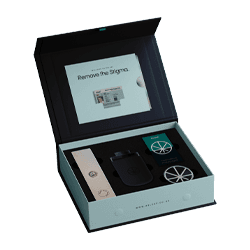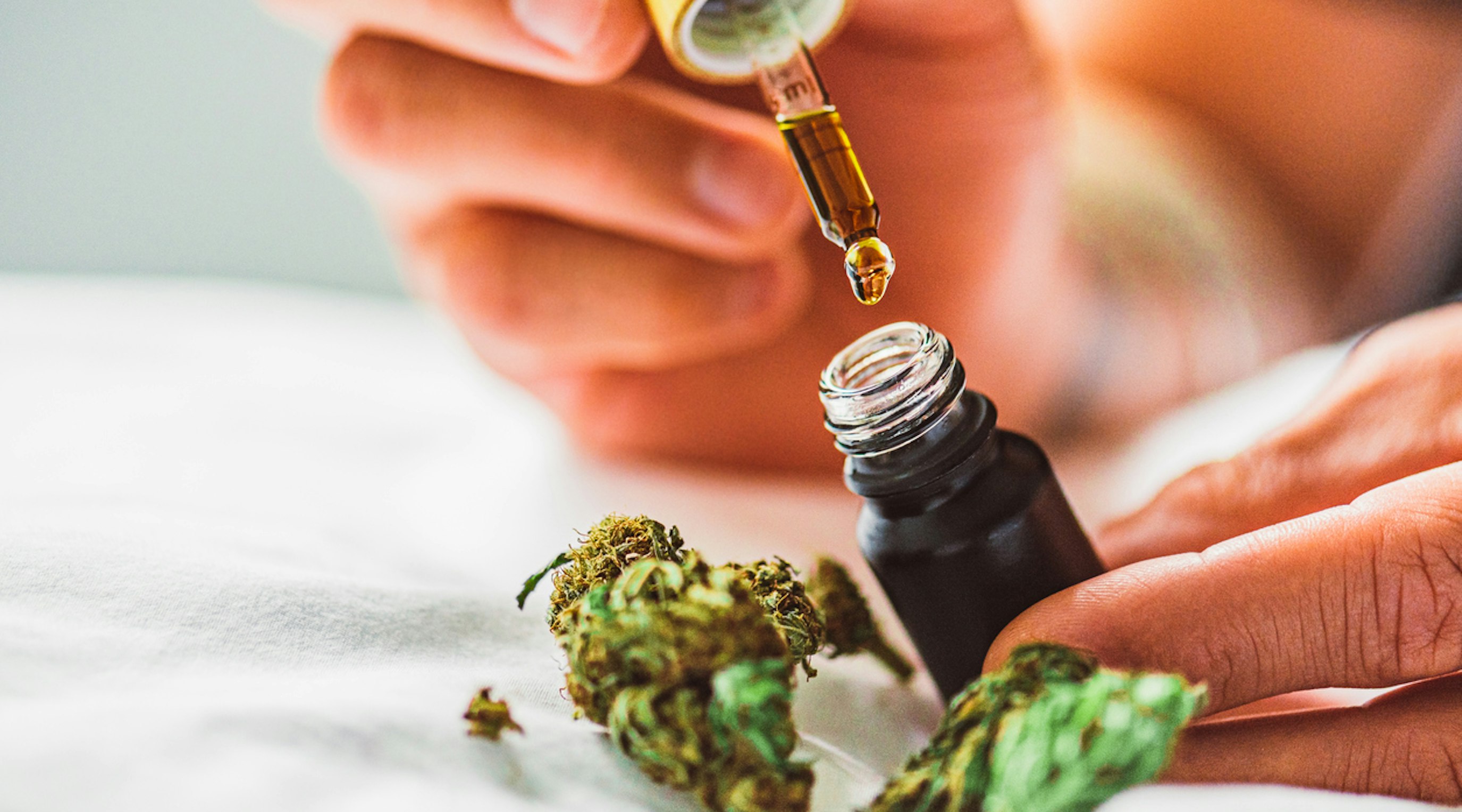What has just happened to CBD in the UK?
This change will have wide implications for retail businesses and CBD product manufacturers in the UK. It may stifle the relationships with international CBD brands exporting their products to the UK. Whilst the updated advice is just advice, retailers have started taking measures to align with the new consumer guidance.
Cannabidiol, aka CBD, the cannabis extract component, is not a scheduled substance in the UK. It does not have narcotic effects and does not produce a high. The natural plant-derived molecule has a well-documented safety profile in humans and a long list of useful medicinal properties yet to be fully utilised. It is also sold as a health food supplement online, in supermarkets and in shops on the high street.
Why did the FSA update the CBD ADI?
The FSA updated the Acceptable Daily Intake for CBD as a health food supplement for potential safety reasons. The current ADI for CBD has sat at 70 mg per day for the last three years. The number was given in 2020 after looking at the evidence showing it is the lowest dose that CBD interacts with some medications in the liver.
CBD has been considered a novel food under the new Novel Food Act since 2019 because it doesn’t have a recorded history of use before 1997 in Europe. Because there is an overlap between food and medicine when it comes to CBD, the greater investigation is warranted to determine the true safety of the cannabinoid to allow producers to give the correct information to consumers.
The Acceptable Daily Intake (ADI) is a number you will see on the packaging of food products and health supplements. It guides how much of an ingredient consumers should use in a single 24-hour period. This is done to ensure consumers come to no harm from ingredients or marketing claims of how much should be used or using potency to make sales.
In some cases, CBD can inhibit liver enzymes necessary to break down certain drugs. When the liver's ability to do this is interfered with, it can cause higher levels of the drug in the body, causing unwanted side effects and potential toxicity. It may result in the function of the medication being rendered useless or relief or control of symptoms could be reduced.
Enzymes that have shown to be inhibited by CBD are in the CYP450 system - CYP2C9, CYP2C19, CYP2D6, and CYP3A, potentially CYP1A2, CYP2B6, CYP2C8, UGT1A9 and UGT2B7.
How did the FSA come to this decision?
A subgroup for the Advisory Committee on Novel Foods and Processes, in combination with the Committee on Toxicity (COT), was set up to assess the information collected. The objective was to create a risk assessment on CBD food products for oral administration only containing CBD with a 98% or greater purity, which most people will know as CBD isolate.
“Chronic daily lifetime use of Pure Form CBD (≥98% purity) in foods has yet to be fully assessed rigorously and scientifically. As a consequence, it cannot be ruled out that long-term daily chronic use of pure form CBD (≥98% purity) at intake levels higher than 10 mg CBD/day could contribute to the development of adverse effects over time, most notably in the liver”.
The FSA is still unsure whether CBD does cause harm to the liver with persistent long-term chronic use, although it does suggest that there are multiple interactions taking place that temporarily alter function. The previous advice of 70mg is the lowest dose seen to have drug-to-drug interactions, but the committee could not rule out that there weren’t interactions at lower doses.
“A dose of 70 mg CBD/day (1mg/kg) was the lowest dose evaluated in human studies, and drug-drug interactions at doses lower than 70 mg/day cannot be ruled out. It is recommended that consumers do not ingest more than 10 mg CBD in any one day.”
The FSA’s COT states that there would be clear concerns about safety with use greater than 70 mg per day. However, those with a lower body weight should adjust their intake accordingly. It does not mean that 70 mg is safe either; it just means that it could result in potentially adverse effects in some people within a general population above this dose.
The committee has identified the following two reasons for the amendment:
“Currently, somnolence (excessive tiredness) and liver effects are the main effects of concern.”
The number has been reduced after a consultation with companies selling CBD products in the UK who have provisionally registered with the FSA’s Novel Foods List. They were asked to submit information relating to their products.
The joint committee states that there are large gaps in the data, and therefore, it is best to err on the side of caution.
The COT devised three studies to examine the No Observed Adverse Effect Level (NOAEL) using rodents for the most sensitive human relative adverse effects. These three studies derived quantities of 72 mg, 50mg, and 25 mg.
The final approach is to assess the combined human and animal studies and average the result, giving us 10 mg per kg of body weight per day until further human studies have been conducted. The advice is given to protect the most vulnerable people.
What advice is the FSA giving?
After looking at the toxicology and scientific data on human use of 98% CBD isolate taken orally by humans, the advice the FSA and FSS are giving to consumers for all CBD products is the following:
- This advice does not apply to vaporised or topically applied CBD products.
- Healthy people should follow a 0.15mg/kg body weight per day limit, the equivalent of 10 mg for a 70 kg person. This is equal to 4-5 drops of 5% CBD oil.
- Patients taking any prescription medication should avoid taking CBD if possible.
- CBD should not be taken by breastfeeding or pregnant women
- Anyone considering taking a CBD food supplement should consult a medical professional.
- Parents should avoid giving CBD to children.
- Prospective parents should avoid CBD.
- People with suppressed immune systems should avoid CBD
- There is currently no ADI for unhealthy people, and they should seek medical guidance
- High-fat meals can increase bioavailability by four-fold.
Existing rules and guidance on CBD
Until now, the recommendation and advice on CBD from the Food Standards Agency and Food Standards Scotland is that you shouldn’t exceed more than 70mg daily.
The reasoning behind this is due to the potential negative interactions that CBD can have with some medications and liver enzymes that can increase the potency of the active ingredients.
The cannabis industry speaks up.
To get more insight into the FSA's decision, Releaf spoke to cannabis lawyer Robert Jappie at Fieldfisher, who had concerns that the turbulence of the CBD industry makes it hard for businesses to flourish and reach their full potential. “It seems like overkill. It's tough for businesses when they keep moving the goalposts. However, the FSA has gone further and said there will be no enforcement on this issue and no changes need to be made.”
Reflecting on what impact the new ADI will have on existing products, the experienced solicitor questioned the impact along the supply chain, “The concern is how will the retailers react? There's nothing on the brands to make changes, but they may feel uncomfortable having high strength products on the market”. Comparing the multi-serving bottles of alcohol to those with CBD, “You don't drink a whole bottle of gin a day, but you can buy a whole bottle of gin.”
There are many moving parts to any industry, and CBD is no different. The FSA is speaking with the British Retail Consortium, which will give their view on how things should move forward from here. “It’s likely that retailers will follow the view of the BRC,” Robert added.
“The potential is devastating for brands that have worked really hard to get their products into mainstream retail. If you have 30mg of CBD in it and the BRC says they can't support more than 10mg in a single serving, British supermarkets will stop stocking those products.”
“Their position is clear; there is evidence of liver and thyroid damage, so if you consume that amount of CBD isolate over a long period of time every day, there could be adverse effects.”
The largest CBD retailer in the country, Holland & Barrett, was in the media spotlight for good reason. They reacted quickly to the FSA news and withdrew all CBD products from the shelves, sparking mass inquiries to their phone lines from regular customers to determine if their favourite CBD products would still be available to purchase. I called the head office and spoke to a lady named Cody, who informed me that the health food supplement giant would be reformulating products to have more appropriate dosing following the FSA’s new advisory.
In an interview with Business of Cannabis, Goodrays, a 30 mg tinned CBD beverage maker, said, “There’s no change to the legality of our products, and there are loads of other categories that sell products which have a higher recommended daily intake, such as alcohol, soft drinks, vitamins and supplements. It’s in no way unusual. We’ve got incredible relationships with all our retailers who have been positive and supportive during this update as they understand the difference between our products and the rest of the market.”
Alternative views?
The EICH conducted their investigations into what a safe and suitable RDA would look like in 2021. They concluded 160 mg of CBD per day was safe and have questioned the Committee on Toxicities’ 3-part test methodology, which remains shrouded in secrecy.
The ACI has also questioned this aspect of the report and why such large reduction multipliers were applied. The conversation, it seems, is not complete and will seemingly continue.
How much difference will it make?
Thus far, retailers and manufacturers have said they will continue with business as usual. The British Retail Consortium has given no update on changing its position on product strength. Consumers should consider the new advice and make an informed decision.




